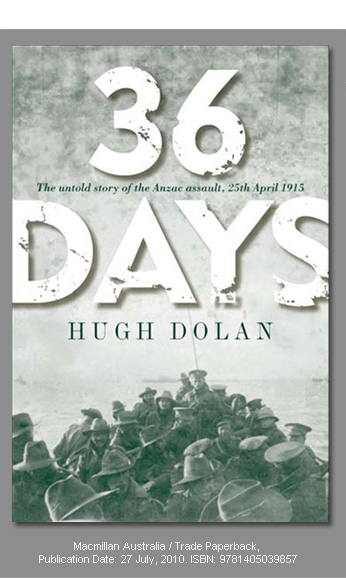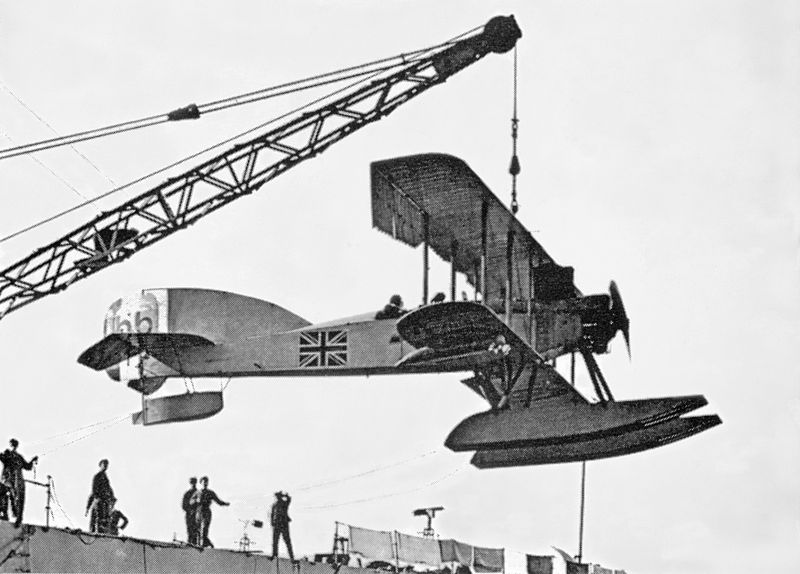 We’ve just had our Anzac Day ceremonies here. Attendance at the dawn services and veteran marches is growing by the year, they say. This year something new emerged on one of my favorite radio shows, Late Night Live with Phillip Adams — an interview with Hugh Dolan author of 36 Days: The Untold Story of the Anzac Assault, 25 April 1915. The program is headed Dispelling the Gallipoli ANZAC myths. I subsequently watched the related TV program, Gallipoli From Above: The Untold Story. And of course I’ve ordered the book! One more to read, damn it.
We’ve just had our Anzac Day ceremonies here. Attendance at the dawn services and veteran marches is growing by the year, they say. This year something new emerged on one of my favorite radio shows, Late Night Live with Phillip Adams — an interview with Hugh Dolan author of 36 Days: The Untold Story of the Anzac Assault, 25 April 1915. The program is headed Dispelling the Gallipoli ANZAC myths. I subsequently watched the related TV program, Gallipoli From Above: The Untold Story. And of course I’ve ordered the book! One more to read, damn it.
There are many facets of the Anzac myth that will continue to be discussed and one of them is the perennial question: Why do Australians celebrate a military defeat as “the moment” that supposedly defined us as “a nation” or cast in bronze what we call our “national identity”?
Commentators are forever discussing the irony of our nation apparently “taking pride” in a military defeat.
How does that jell with what New Testament historians use as criteria of historical authenticity? So we celebrate a defeat. Does this not conform well with the criterion of embarrassment? Nobody would choose to celebrate a defeat unless it really happened, would they? And the story has been sustained by multiple independently attested sources, hasn’t it, over the years. So here we surely see in this event at least two criterion of authenticity found to be entirely validated.
But the Anzac story gets into more detail. The landing itself was a bloodbath. At dawn, under heavy fire. The Australians were victims of British incompetence and were landed at the wrong beach for starters.
No-one would make up a story in which they were the victims of such incompetence and disaster, would they?
Well, 36 Days suggests that that’s exactly what “we” have done now for almost 100 years.
According to the research uncovered by Hugh Dolan the Australians landed spot on at the beach that had been designated to them. There were no currents to drag the ships off course.
Moreover, the Australians themselves were in charge of the details of their landing, not the British. Australian command sought permission from the British commander Hamilton to launch a landing well before dawn (not at dawn as the British were about to do) and Hamilton approved.

The reason for the landing under cover of a moonless night, by stealth, was because the latest technology available at that day had been deployed and the Australian command knew exactly what to expect if they landed at dawn. They knew exactly what Turkish guns there were, how many and where they were placed; they knew the trench positions of Turkish defences; they knew how many Turkish troops were bivouacked in what locations ready to move to key parts of the peninsula at a moments notice.
All of this had been revealed in advance by aircraft reconnaissance. The aircraft (seaplanes) had been put within range by the world’s first aircraft carrier, the Ark Royal.
So the Australians landed and took the beach in darkness before the Turks realized what was happening. There was some bombardment directed at subsequent landing parties of troops still coming in at dawn and afterwards, but it was not the wholesale bloodbath that we have been told it was through the generations.
Meanwhile, further south, the British forces were conducting a landing according to the way they had always done such things: a barrage of cannon fire that either destroys the enemy defences or mostly just wakes them up and tells them to get ready, followed by a dawn landing. The Turks were prepared; the British landed at dawn when they were visible, and they were slaughtered wholesale. An aircraft pilot recorded the scene: the sea became the colour of blood and even from such a great height the smell of blood and burnt corpses was registered.
Criterion of embarrassment?
So it looks as though we do have a case here where Australians have rejected a narrative in which they might expected to have taken some pride — a more intelligent landing, one informed by the most modern technology, than the one accomplished by the British — and have taken on a myth of victimization and disaster. They appear to have stolen the British carnage and taken it for their own experience.
Criterion of multiple attestation?
Official historians, eyewitness accounts, newspaper reports of the day — we’ve heard the story every year and always some new source seems to emerge to support it. But for some reason certain manuscript evidence, maps, diaries, were overlooked.
Multiple independent testimony was not enough to establish the truth of the landing. There were always a few documents that were not part of the public narrative until now.
Historical facts hidden by the criteria of mythmaking
So it appears that here we have a case where the “criterion of embarrassment” and the “criterion of independent multiple attestation” have in fact served in the creation of a national myth. Those two criteria have actually suppressed the historical facts of the Australian landing at Gallipoli.
If you enjoyed this post, please consider donating to Vridar. Thanks!

“But the Anzac story gets into more detail. The landing itself was a bloodbath. At dawn, under heavy fire. The Australians were victims of British incompetence and were landed at the wrong beach for starters.”
Very interesting, Neil. Is this actually the common wisdom among Australians?
For most of my life, as an American, I knew only three things about Gallipoli: (1) It happened during World War I; (2) it was something the British did; and (3) it was disastrously bungled.
Yes, every school child knows the stupid British landed us at the wrong beach, that the first wave of Australians landed at dawn under Turkish fire, and it was British command that was responsible for pretty much the whole disaster that played out after that.
I am no specialist in this area but whatever bungling there was appears to have been on the part of both British and Australians, but the British seem not to have been quite the complete fools the Australian myth has made them out to be. There’s much more to the story, of course, but I concentrated only on the landing itself.
It appears the biggest “bungle” of that first day in the Australian sector of responsibility was the failure of the Australians to advance as far as had been hoped to take a key “third” ridge from the outset. There seems to have been some chaos in the early stages of the advance and Hugh Dolan says that the Australian commanders lost their nerve and dug in too soon.
What I find of interest concerning the myth itself is that there seems to have been a “need” to create a story of the colonial Australians being wasted as cannon fodder by stupid and arrogant British and the colonial underdogs proving themselves through it all to be of superior character to the British upper class.
I’m kind of guessing that that’s the “ideology” that shaped the selection of data to create the narrative that has dominated our psyche for a century now.
Considering the anti-war fuss about Anzac Day in the late-sixties and early-seventies…the fact the Diggers could point to it as a commemoration of a defeat/retreat nullified anti-War protesters’ argument.
It was a rock-bottom moment for Australia/New Zealand. It was something we couldn’t do much with. But as a defining moment, the ANZACS still went on to distinguish themselves highly at both Beersheva and the European Western Front, once we had our own commander, Sir John Monash.
Interestingly, Beersheva was the flat-ground return match for Gallipoli. Under equal terms. And I don’t need to remind anyone the Aussie Light Horse made sure the return match was a win.
Perhaps the fact we had Monash in charge afterward instead of back-room British generals made a huge difference.
The fact that Monash was Jewish? Might have had some impact on it too.
The reason for the ANZACS being landed at Gallipoli? Two-pronged strategy, as the Russian Army was supposed to attack the Turks from the north while the British and ANZACS attacked the South. I’d have to read up on my Russian history of 1915, but it wasn’t a great time for them with the lead-up to the 1917 communist revolution. The strategy doesn’t seem to have done much good at either end.
But the ANZACS bounced back, which IS what defined the Australian character.